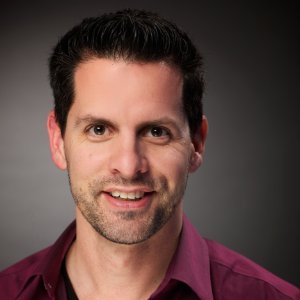Or listen in your favorite podcast app
Apple Podcasts / Google Podcasts / Stitcher
Imagine accepting the CIO job at Facebook right as the social media network was about to take off. Now imagine that your first task is to fix a complex calendar system that is causing headaches throughout the company and, oh by the way, if you can’t do it you’re fired. That was the scenario Tim Campos (LinkedIn | Twitter) found himself in but don’t worry because, spoiler alert, he was able to figure it out.
On this special two-part episode of IT Visionaries, Tim joins us to share that story and so much more, including how he lept from Facebook into his own start-up, Woven, what it means to be a CIO, the importance of integration and mentorship, and even a few stories about Mark Zuckerberg and Sheryl Sandberg.
This is part two of Tim’s interview. To listen to part one, click here.
Key Takeaways:
Looking toward the future — (1:25)
Tim says that Woven is going to be at the forefront of a new way people use calendars. Woven is already integrated into a number of different apps and software, and in the future, it will be able to fully integrate even more.
“I don’t want to read the crystal ball. I want to make the crystal ball. I want to give people something completely new and valuable for them. Our vision is to help people take command of their time and spend it on the things that matter most to them….We will make the calendar smart by giving it this information so that it can start doing some work for people.”
Working at Facebook with Mark Zuckerberg and Sheryl Sandberg— (4:30)
Tim went through multiple rounds of interviews at Facebook. During the process, Tim interviewed with Mark Zuckerberg, during which Tim admits he wanted to learn if Mark was just lucky or really smart. Turns out he was both, and Tim was really impressed with the initial interaction. All of the subsequent interactions the two men had taught Tim that Mark was a really curious and fully-informed guy who was deeply invested in getting things right at his company.
Tim also worked with Sheryl Sandberg, and he was impressed with how open Cheryl was especially after her husband died. And Tim says that kind of openness is what made her a good leader.
“The first five minutes of the conversation was me sort of getting over the fact that I was talking to Mark Zuckerberg. One of the cool things about the conversation with Mark was he really made an effort to make me feel at ease. You know, I’m sure he gets that from time to time. And, and he gave me the five minutes I needed to sort of get over myself and we then had a fairly real conversation about the company, about the culture. He asked me what I like about Facebook. And I told him that, the thing that really blew me away was the culture of the company. And we had a little debate on the importance of culture. We had a little debate on technology and through this, it was like sparring, right? And what I got out of this was he was lucky, but also ridiculously smart. I could tell. And that carried forward into all my subsequent interactions with them.”
“One of the things that I saw about Zuck in that first interview and definitely experienced in other meetings I had with him, he’s like a sponge for information. He wants to learn. He wants to understand. And he wants to hear the things that may not be what is either comfortable to say or which are comfortable for him to hear. And he wants the tough stuff because that’s where he sees the greatest insights and learnings are.”
“It was easier for [Sheryl] to just be fully open and transparent, but it also fit into a general leadership theme that she had, which is that when leaders are open and vulnerable, they’re more endearing and it’s easier to follow them then if they put a persona up that they are these, perfect infallible people. She was anything but perfect in her own words. She would have moments where she would clearly be struggling emotionally, but she was real. And it was inspiring. It made you really want to work for her. And that was a really amazing thing to see.”
The importance of mentorship — (13:00)
Throughout his career, Tim has had mentors, including Bruce Armstrong, who was one of the youngest VPs at Sybase when Tim worked there. Bruce taught Tim to think big instead of small, to always look for opportunities to prove your capabilities and to think about your future. This advice was invaluable and Tim has brought it with him every step of his career. Today, Tim serves on the board for a company called Year Up, which helps young people move from minimum wage jobs to careers within a year.
“I definitely think that if we can just inspire a few people in the world and they can inspire others there are so many great things we can do.”
Some of the biggest problems Tim has faced — (18:05)
A couple of days before Christmas one year, Sheryl’s calendar was completely corrupted, which then led to a domino effect of corruption in many other calendars because she was the source for many events and entries. Tim’s team had to work for nine straight days over Christmas to fully rebuild the system and they did it so well most people didn’t know anything had happened while they were gone.
Tim also says his last few months at Facebook were a challenge because the company had grown so large that there was a natural friction that occurred with the culture of the company. When everyone doesn’t know each other, there will be certain problems that happen and culture is hard to maintain because there is so much more separation than when the company was small.
Why Woven was built in stealth mode — (21:20)
Because of the complexity of the technology, how difficult it was to introduce machine learning to the various terms and elements of calendaring, and the time it took just to build the infrastructure, building in stealth was the only option.
“We needed to spend a lot of time just getting the infrastructure right, getting the foundation right and didn’t want to do that in an environment where we were telling everybody exactly what we were doing….At every start-up, you start with some ideas about how you’re going to take over the universe and some of those ideas are wrong. And so, when you’re not public, it is a lot easier to make adjustments to those things.”
What Woven is building now — (23:45)
Woven has recently introduced a number of new integrations, including with text messaging interfaces. Tim explains that email is becoming less popular, especially among the younger generation, which prefers to use texting to make plans. Building a way to integrate your calendar with your text messaging interface creates an opportunity to meet customers where they are and provide a new way to schedule everything they need. But it’s not just texting, Woven is integrating with all the applications people are using to communicate, whether it’s Facebook, Slack, and more.
“Where we’re going next is deeper and broader integrations.”




